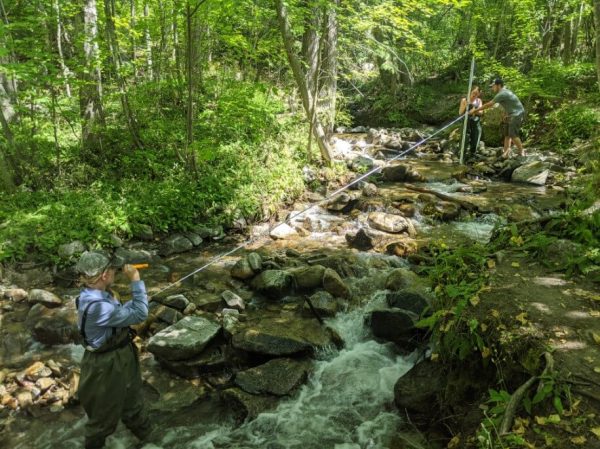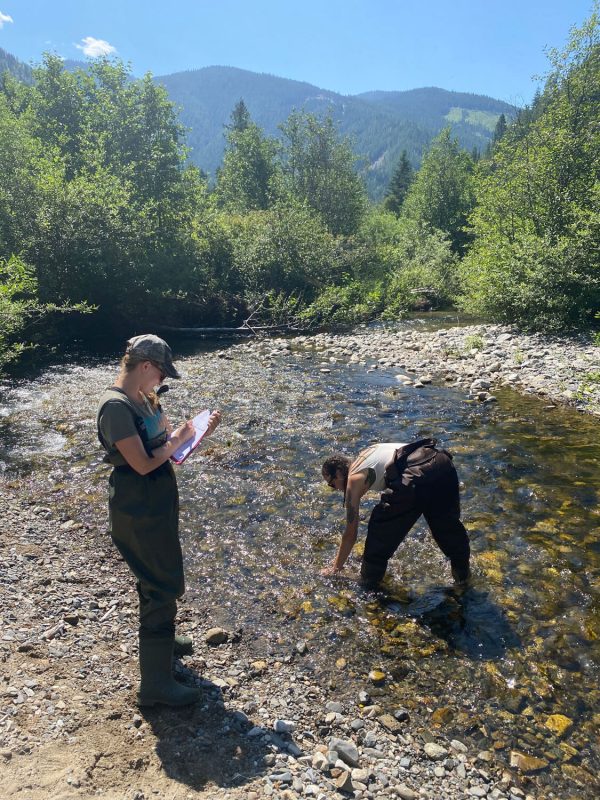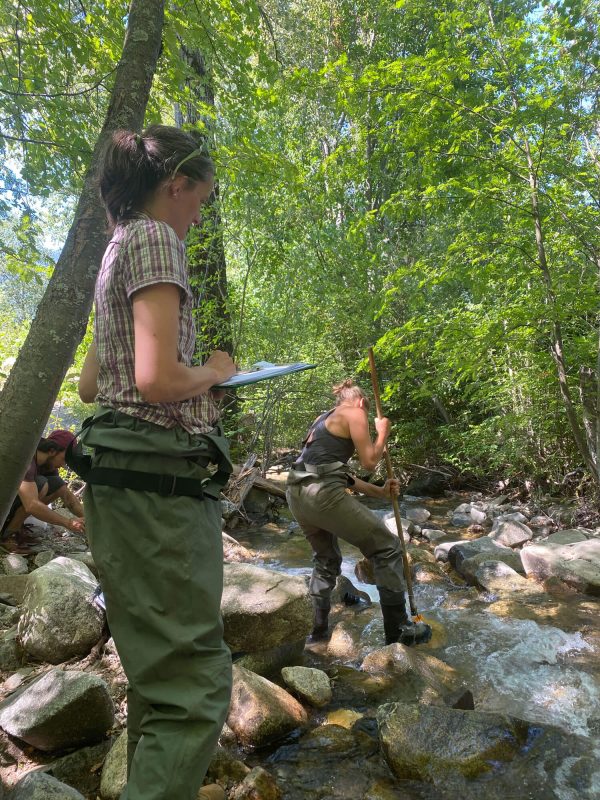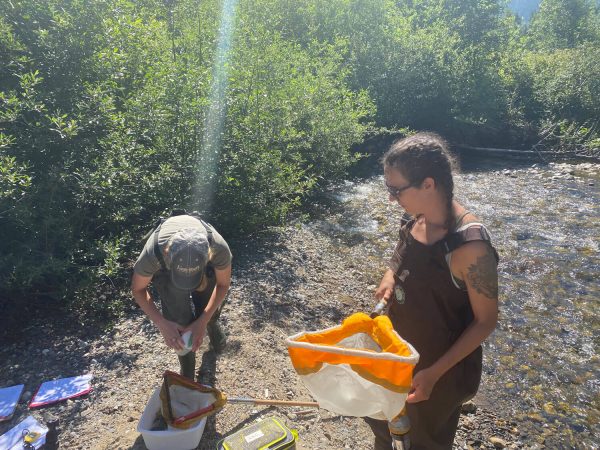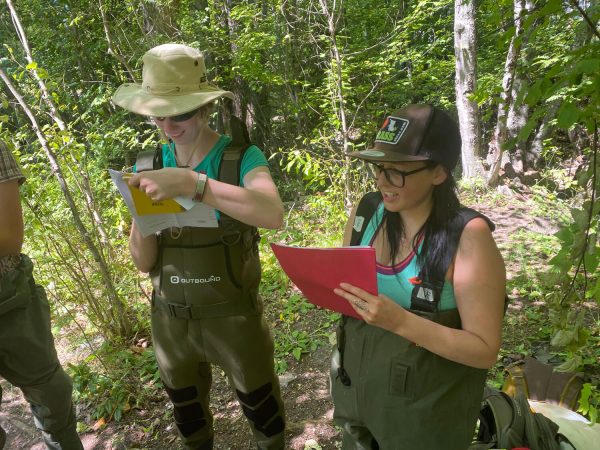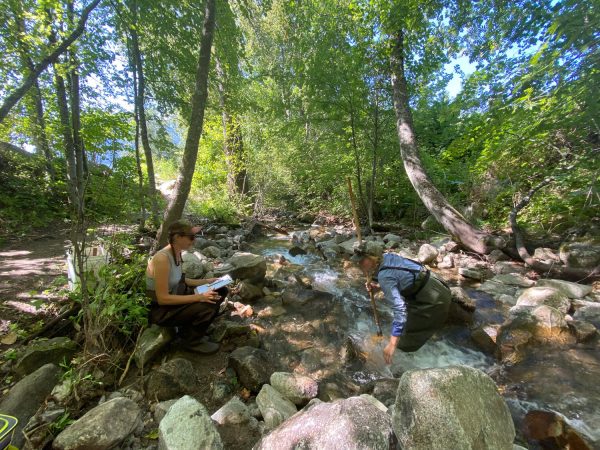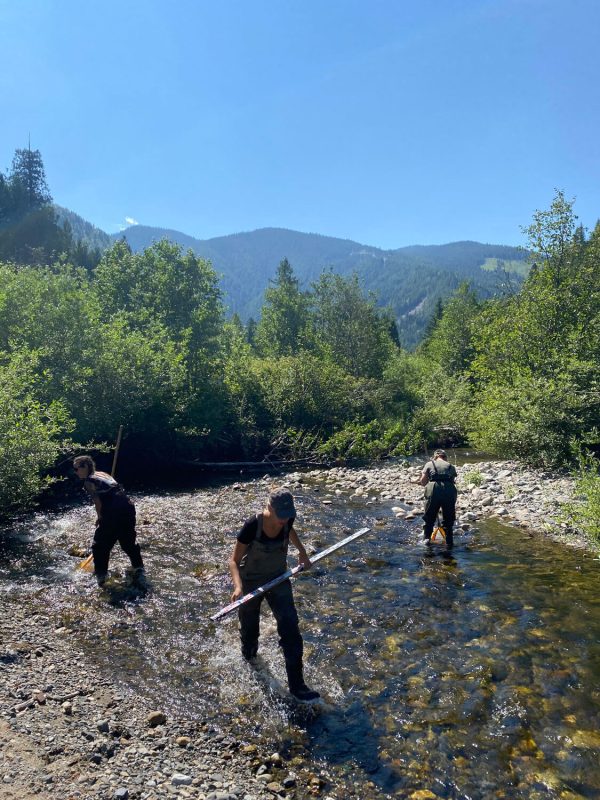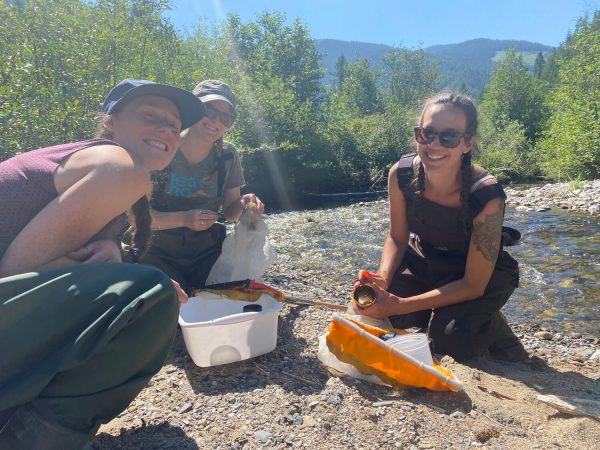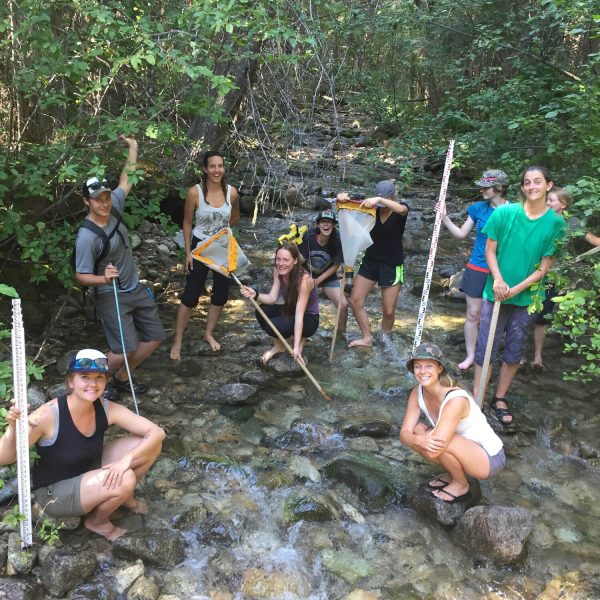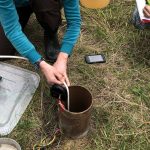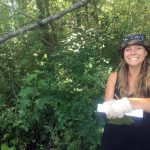CABIN training with Friends of Kootenay Lake in Nelson, BC
Author: Kyle Prince, Living Lakes Canada Program Coordinator
On July 29th and 30th, Living Lakes Canada (LLC) staff were able to successfully deliver a biomonitoring protocol training session to the Friends of Kootenay Lakes Stewardship Society (FOKLSS) volunteers in Nelson, B.C. The two-day training program, delivered by lead trainer Raegan Mallinson and assistant trainer Kyle Prince, taught and certified participants on how to properly use the Canadian Aquatic Biomonitoring Network (CABIN) protocol.
CABIN is a nationally standardized biomonitoring protocol, developed by Environment and Climate Change Canada (ECCC), and involves collecting benthic macroinvertebrate samples alongside habitat and water quality data to determine stream health. Benthic macroinvertebrates, the community of organisms that live in the substrates along the bottom of a river or stream, are excellent indicators of aquatic health.
“The training went extremely well, the hot summer heat did not slow this group down one bit. It was really great to see eager, and enthusiastic participation from all of the volunteers. Learning a new environmental monitoring protocol, and using it right away is such a great outlet for passionate environmentalists that want to make a difference, and I think that is exactly what we saw with this group.” ~ Kyle Prince
The CABIN protocol is mainly used for small to medium sized creeks and will be a driving force of the new FOKLSS biomonitoring program, which will be starting August 2020, and running for three years. These community-based water monitoring efforts will be focused on tributaries of Kootenay Lake to help understand effects of landscape and climatic changes, fill crucial data gaps on vulnerable small to medium sized streams, and prioritize educational and restoration projects moving forward. FOKLSS will be using a mix of analysis techniques including traditional morphological identification (Identified by physical traits) by trained taxonomists, and DNA metabarcoding. The DNA sample analysis techniques will occur through Sequencing The Rivers for Environmental Assessments and Monitoring (STREAM), the program LLC is partnering on with World Wildlife Fund-Canada, Environment and Climate Canada, and University of Guelph.
Providing biomonitoring training to passionate citizen scientists to assist with a grassroots community-based water monitoring initiative is one of the main goals behind the Living Lakes Canada organization.
LLC looks forward to continued work with FOKLSS and their dedicated volunteers.
Questions about a CABIN training? Contact raegan@livinglakescanada.ca


